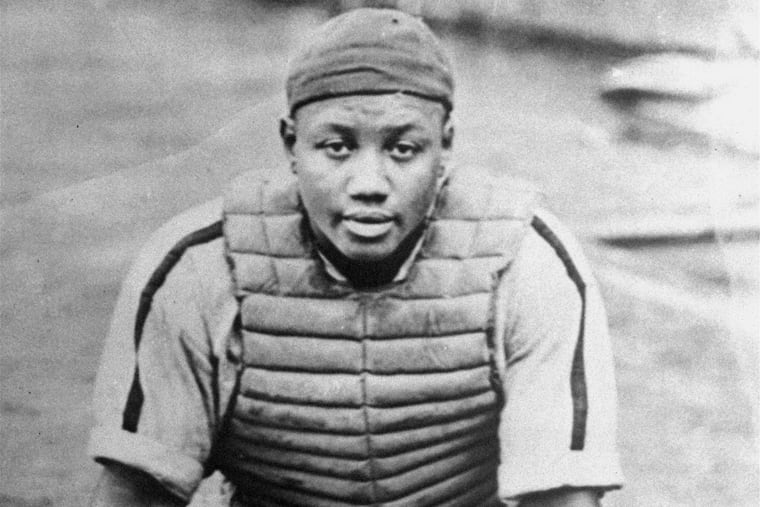Josh Gibson, Waverly Woodson Jr., and historical oversights of Black American accomplishments | Editorial
It’s not just efforts to suppress history that are problematic, it’s also omissions from the record that deprive African Americans of due credit for all they have done to help make our nation great.

In a world where technology has made it too easy to manipulate facts, the truth has become whatever any purveyor of information wants it to be. But long before we had social media and streaming, lies were often accepted as fact by audiences who prefer the comfort of willful ignorance to any reality that makes them uncomfortable.
That was never clearer than after the Civil War, when defeated Southerners, abetted by Northerners who felt more kinship with their white brethren than with the formerly enslaved Black Americans whom many still did not accept as equals, rewrote history to suggest traitors to this nation were, in fact, heroes of a “lost cause.” It seems the old saying that history is written by the victors isn’t always true.
This country still has more than 2,000 statues and other memorials that pay tribute to the Confederacy, according to the Southern Poverty Law Center. The state flags of Alabama, Arkansas, Florida, Georgia, Tennessee, and North Carolina still resemble flags associated with the Confederacy. And until Congress finally ordered an end to it last year, nine Army bases in the South were named for Confederate generals.
Given such blatant affronts to history, why should anyone be surprised by polls such as one by the Carnegie Endowment for International Peace, which shows 60% of Black Americans think race relations are poor. It’s not just the twisting of history that is problematic, it’s also omissions from the historical record that deprive Black Americans of due credit for all they have done to help make our nation great.
That’s why two recent attempts to rectify historical oversights of Black Americans deserve recognition.
Just days before the 80th anniversary of D-Day in June, it was announced that West Philadelphia’s own Waverly Woodson Jr., a medic who was part of the only Black combat unit to take part in the World War II invasion of France, would be posthumously awarded the Army’s second-highest honor, the Distinguished Service Cross. Woodson’s story of saving lives despite being wounded himself is strong evidence that he deserves an even higher accolade. Even so, getting to this point is a victory, and his supporters haven’t given up on him receiving the Medal of Honor.
Woodson, who died in 2005, was wounded as soon as his landing craft arrived on the beach in Normandy. He jumped into the water, and for the next 30 hours, treated 200 wounded men while under intense small arms and artillery fire before collapsing from his injuries and blood loss. Woodson was awarded the Bronze Star, but white medics with similar stories received higher medals. In fact, of the 1.2 million Black Americans who served in the military during World War II, only seven received the Medal of Honor, and that wasn’t until 1997.
Also worth noting is Major League Baseball’s decision in May to recognize statistics kept by the Negro Leagues, the only option for Black ballplayers from 1920 to 1947, when Jackie Robinson was signed by the Brooklyn Dodgers. Unfortunately, Hall of Famer Willie Mays, who began his career as a teenage phenom for the Birmingham Black Barons, died two days before he was to be honored in a celebration of the Negro Leagues at that city’s 114-year-old Rickwood Field, the oldest pro baseball park in America.
Wouldn’t it have been wonderful to see Gibson, Woodson, and so many others receive their accolades while they were alive?
The new major-league stats confirm what many aficionados of the game had already acknowledged: that Josh Gibson, who died of a stroke at age 35 in 1947, was arguably the best baseball player of all time. Gibson’s Negro League statistics make him No. 1 for batting average in a season (.466 in 1943), slugging percentage (.974 in 1937), on-base slugging (1.474 in 1937), and career batting average (.372 in 2,255 at-bats).
Wouldn’t it have been wonderful to see Gibson, Woodson, and so many others receive their accolades while they were alive? Isn’t it disturbing that race played a significant role in that not happening? Just as irritating are today’s school boards purportedly opposed to “critical race theory” curriculums whose efforts to obscure or alter the actual historical record should be described as whitewashing.
Instead of denying the truth, they ought to free themselves of prejudices that prevent understanding, and biases that destroy community.